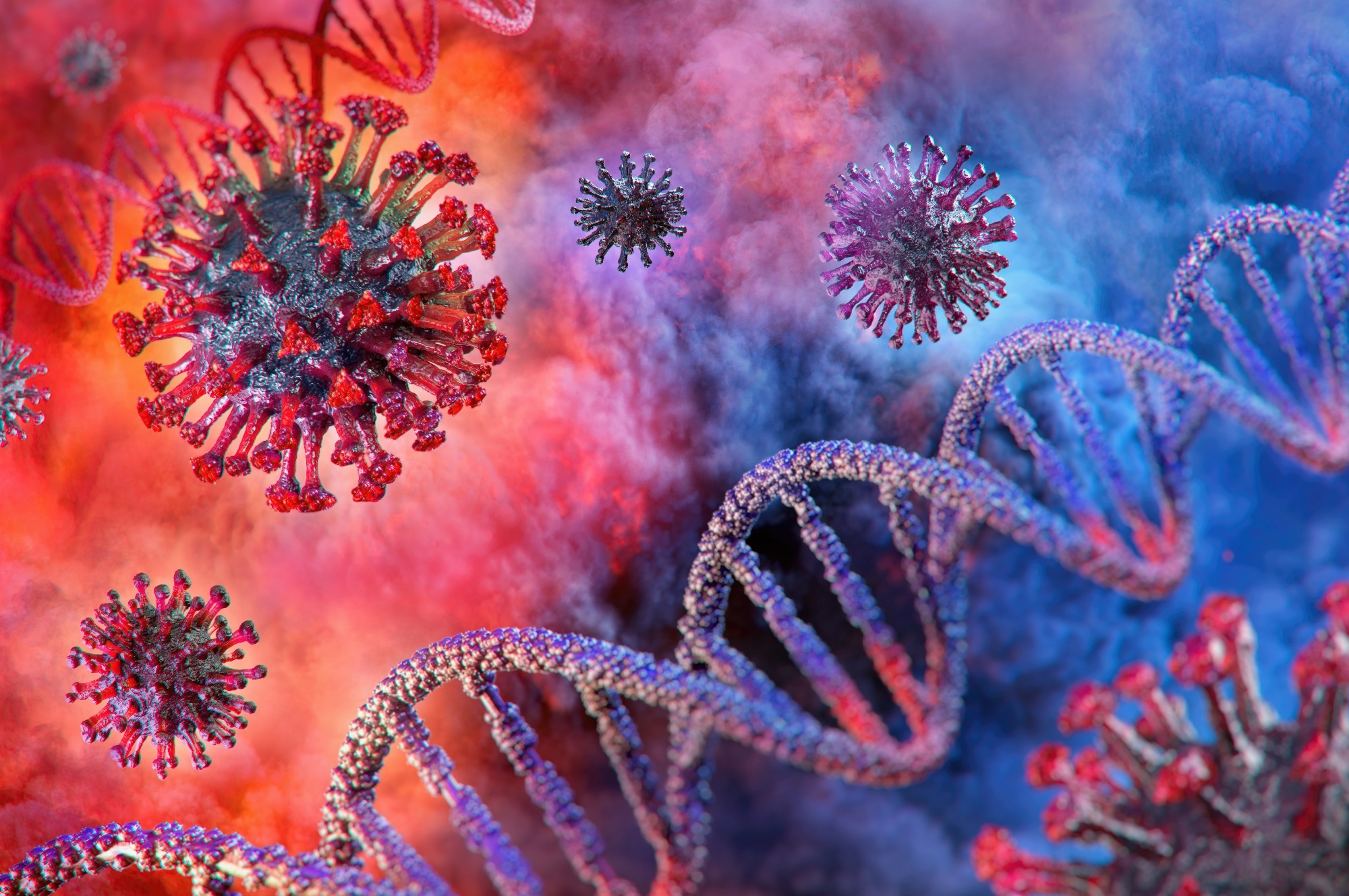The coronavirus disease 2019 (COVID-19) pandemic, caused by severe acute respiratory syndrome coronavirus 2 (SARS-CoV-2), has claimed more than 6.4 million lives globally. Research on COVID-19 has shed light on various clinical manifestations from asymptomatic to severe symptoms.
Several studies have reported the development and persistence of antibodies following SARS-CoV-2 infection.
 Study: Factors influencing the immune response over 15 months after SARS-CoV-2 infection: A longitudinal population-wide study in the Faroe Islands. Image Credit: Corona Borealis Studio/Shutterstock
Study: Factors influencing the immune response over 15 months after SARS-CoV-2 infection: A longitudinal population-wide study in the Faroe Islands. Image Credit: Corona Borealis Studio/Shutterstock
However, as the antibodies decline over time, it is important to evaluate their durability to ascertain the period of protection from COVID-19.
Background
Data on the long-term durability of anti-SARS-CoV-2 antibodies following symptomatic infection are scarce. It is also important to understand the extent of the protective capacity of these antibodies against COVID-19 reinfection. Although several studies have indicated the development of neutralizing antibodies post-COVID-19, the limited length of the follow-up period has posed a challenge in determining the protective period against subsequent infection. Nevertheless, such information is essential for the effective management of the pandemic in the future.
Several studies have indicated that anti-SARS-CoV-2 antibodies persist for at least 12 months. An Italian study observed the persistence of anti-Spike (S) receptor-binding domain (RBD) IgG in most participants for 14 months after COVID-19. A varied level of immune responses was reported across individuals.
In the Faroe Islands, until the emergence of the SARS-CoV-2 Omicron variant, the reinfection rate was relatively rare. To determine the durability of immune responses against SARS-CoV-2, a longitudinal analysis, considering two COVID-19 waves that occurred in the Faroe Islands, was conducted. The first wave started in March 2020 and ended in April 2020, while the second wave occurred between August 2020 and December 2020.
About the study
The long-term humoral immunity to SARS-CoV-2 was investigated in this study. The antibody response was determined by analyzing 1063 blood samples, from 411 patients (0-93 years of age), from two waves of infections. Blood samples were obtained multiple times from each patient for fifteen months after COVID-19 onset.
The total anti-SARS-CoV-2 RBD antibody IgM, IgA, and IgG were determined using a qualitative RBD sandwich ELISA. Additionally, neutralizing antibodies (NAbs) were evaluated using an in-house ELISA-based pseudo-neutralizing assay. The ELISA-based assay was used to determine IgG subclasses in a subset of samples. The durability of SARS-CoV-2 antibody responses was analyzed via nonlinear models.
Findings
The study cohort presented a wide array of COVID-19 symptoms, such as asymptomatic, mild, moderate, and severe disease. In this nationwide longitudinal study, SARS-CoV-2-specific antibodies, for up to fifteen months from the SARS-CoV-2 infection, were evaluated.
In 94% of the participants, a detectable level of SARS-CoV-2 antibodies, particularly IgG, was found. The levels of antibodies varied differentially over time in COVID-19 patients. A characterizing waning of IgG levels was observed from the onset of COVID-19. In both the waves, researchers observed that after the initial decline of IgG level, it plateaued and remained steady for almost seven months. This trend is known as a biphasic pattern.
The biphasic pattern is consistent with the assumption that a portion of plasma cells in an acute immune reaction is transformed into memory plasma cells. This result suggests the shift from antibody production by short-lived plasma cells to antibody production by memory plasma cells.
Although a reduction in IgG levels took place, the neutralizing capacity of circulating antibodies remained significantly high. This finding suggests the high efficacy of neutralizing antibodies induced by natural infection. A strong relationship between IgG levels and neutralizing antibodies was established, which suggested the existence of infection-acquired immunity for about fifteen months.
Interestingly, only one resident of Faroes exhibited COVID-19 reinfection among 4477 individuals diagnosed with COVID-19 by December 17, 2021. The finding of this study is consistent with previous studies that reported that IgG1 and IgG3 were the most common subclasses, where IgG1 was mainly responsible for IgG response. After the first sampling, among the total antibody composition, 83% was found to be neutralizing antibodies, which increased to 94% during the second sampling.
Only 19% of the participants possessed persistent IgA and 3% had IgM after 15 months from infection. The positive IgA responses varied significantly over time. A characteristic waning of IgA was observed since infection onset. Similar to IgG, a higher IgA level was observed in males and older individuals.
Importantly, the current study indicated that BMI, hospitalization, and smoking affected the synthesis of IgG antibodies. A low level of IgG was found in smokers, high levels in hospitalized persons, and a faster decline in antibodies was observed in those with high BMI. These factors may influence the risk of reinfection and duration of protection from the SARS-CoV-2 virus. In younger participants, the magnitude and durability of immune responses post COVID-19 were lower compared to older participants who required hospitalization.
Conclusions
Taken together, the majority of the participants revealed a robust and durable immune response after SARS-CoV-2 infection, which lasted for fifteen months after an initial decline for the first seven months. This study found that sex, smoking status, age, and hospitalization influence the initial SARS-CoV-2 antibody levels. The rate of antibody decay was mainly found to be driven by age, sex, and BMI.